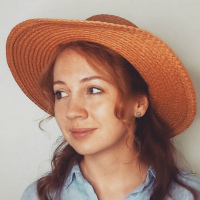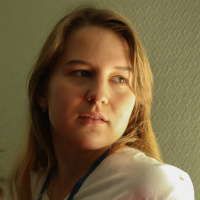‘Bashkir Kids Know How to Use a Bow and Arrow, Imams Keep Ancient Books, and Everybody Preserves the Cultural Traditions’
For 12 days, students and teachers of the HSE School of Asian Studies travelled across the Republic of Bashkortostan. The trip was organized as part of the Rediscover Russia project. HSE News Service spoke with participants of the trip about their immersion in Russian Islamic culture.
A group of 13 students of the Asian and African Studies programme set out from Moscow to Bashkortostan. The group was led by Irina Tsaregorodtseva, head of the expedition, and her deputy head, Valery Matrosov.

Irina Tsaregorodtseva
Associate Professor, School of Asian Studies
Traveling across Russia’s Islamic regions provides our students a good opportunity put the skills that they learn in our programme into practice. The trip helped the students become acquainted with local forms of Islam while visiting private collections to discover uncatalogued Arabic sources, which we now must document and partially translate. For instance, thanks to Bakhtigarey Armanshin, the imam of the mosque in Starochukurovo, the students had a chance to look through old manuscripts. Such documents are usually kept in museums, and it is not easy to access them. We were able to take photos of Arabic books in other areas of Bashkortostan, too. We are going to catalogue and document our findings.
HSE students visited mosques in seven Bashkir districts: Ufimsky, Chishminsky, Buraevsky, Yanaulsky, Baltachevsky, Tatyshlinsky, and Askinsky. Also, the expedition included a tour of the most famous Muslim monuments in the Chishminsky district: the Mausoleum of Huseynbek (a legend says that this enlightener from Bukhara introduced the ideas of Sufism in Bashkortostan) and the Mausoleum of Tur-Khan, supposedly a warrior of the Genghis Khan family.

Vladimir Tsekh
Third-year student, Asian and African Studies
Many tours are arranged for HSE students, but very few of them meet the needs of those who study the Middle East. Conversely, exploring Muslim monuments (including those in Russia) are of particular interest to us, as they are closely related to Islamic Studies, the Arabic language, and Arabic-script epigraphy.
The expedition gave me a chance to learn more about Muslim culture. While armchair orientalists are a phenomenon of the 19th century, modern researchers have to do field work. This was the first time I had interviewed people and analyzed some real Arabic-script sources.
.
In Bashkortostan, students collected information by interviewing Islamic clerics and ordinary Muslims. The interviews helped students understand that local Islamic culture is diverse, but not radical.

Elizaveta Naumova
Fourth-year student, Asian and African Studies
I have been thinking of studying anthropology of Islam—in particular, Islam in Russia—for a while. I have tried my hand at interviewing people and learned that many Russians seem interested in Islamic culture. I would love to do research in this field.
One of my most vivid memories is of visiting the Tur-Khan Mausoleum. The road was so bad that our bus got stuck, and we had to walk up the hill in deep mud and against strong wind. But what spectacular views we could see once we reached the top of the hill!
Another thing I remember very well is how we met local kids in Kartkisyake Askinsk. They were so enthusiastic, so special. They taught us how to shoot with a bow and arrow, they talked about their life, and they showed us their school and mosque. We were thrilled to work with ancient books kept by imams. The Bashkir people carefully preserve their cultural heritage.
The School of Asian Studies expedition was organized as part of the Rediscover Russia project. The project was launched at HSE University two years ago. Since then 170 expeditions have been organized to explore 62 Russian regions. Over 2,000 students and about 200 teachers and researchers of HSE University have taken part in them.
Sergey Seleev
Project Team Manager, Office for Educational Innovations and Short-Term International Programmes
The Rediscover Russia project is important, because it helps immerse students in the reality that they study. That is how we can bridge the fundamental gap between theoretical knowledge and real-world competence, i.e., between the research and the real lives of people in regions of our huge country. It is not only HSE Moscow that takes part in the project. Campuses of other universities organized twelve of the 77 expeditions in 2019. This year, HSE students have already visited 27 regions of Russia — from Kaliningrad to Kamchatka and Primorsky Krai. By the end of this year, more expeditions will have set out to the Central Federal District (Belgorod and Kursk Oblasts) and the Republic of Sakha (Yakutia).
Irina A. Tsaregorodtseva
Associate Professor at the School of Asian Studies
Valery Matrosov
Visiting Scholar at the Faculty of World Economy and International Affairs
Sergey Seleev
Project Team Manager at the Office for Educational Innovations and Short-Term International Programmes
See also:
Tea Ceremony, Naruto and Norigae: HSE Celebrates Year of the Green Wood Dragon
On the day of the second new moon after the winter solstice, the HSE Cultural Centre welcomed admirers of Chinese, Japanese, Korean, and Vietnamese cultures. HSE students, teachers, and guests celebrated the Lunar New Year with South Korean hit songs and popular anime openings. They attended calligraphy and origami classes, tried regional sweets, and had Far Eastern teas. The festival ended with a big concert.
Annual Report of Rediscovering Russia Student Expedition Project for 2022 Published
The team of HSE University’s Rediscovering Russia project, with the support of the presidential platform Russia—Land of Opportunity and the More Than a Trip programme, has published an annual report on the results of the 2022 season in the format of a book. The publication includes key results, travel geography, project development plans, and much more.
Oriental Crazy Day 2023: Photos with Panda, Calligraphy and Oriental Hospitality
On May 21, HSE School of Asian Studies organised their traditional Oriental Crazy Day for 2023. Prospective students learnt more about HSE degree programmes and admission process, and met with students and university teachers at the ‘Meeting under the Stars’ held at the HSE Cultural Centre.
The Initial Results Are in for the Rediscovering Russia Student Expedition to the North Caucasus
KAVKAZ.RF summed up the initial results of the Rediscovering Russia student expeditions to the North Caucasus that were organised by HSE University and the Russia is the Land of Opportunities non-profit organisation. Drawing on the results of three expeditions, students prepared video depictions of six North Caucasus republics, developed a branding concept for Dagestani carpets, and drew up a new tour route through North Ossetia-Alania.
‘Asian Studies is a New High Tech for Russia’
Russia's pivot to the East requires balanced actions, as well as knowledge of the languages, cultures, and traditions of Asian countries. Without this, Russian businesses will not be able to work there effectively. Experts and government representatives discussed the issue and the experience of Russia's regions working in Asia at ‘The Pivot to the East: The Regional Dimension’, the first interregional conference held by HSE University with the support of the Russian Ministry of Economic Development.
HSE Geography Students Share Impressions of Field Practice in Volga Territories
Second-year students of the HSE Bachelor's Programme 'Geography of Global Changes and Geoinformation Technology' covered 4,000 kilometres in 20 days following a classical meridional route. They travelled to Cherdyn, a city in the north of Perm Krai with only taiga and polar bears beyond it, then continued far south to the Volga Delta. Between these two extreme locations, they studied the central feature of Russia's life and history: the Volga River and its basin.
HSE University and Northern Caucasus Resorts Open Registration for ‘Rediscovering Russia’ Expeditions
HSE University together with Northern Caucasus Resorts with the support of the ‘Russia – Land of Opportunity’ platform have launched a series of research and practical expeditions in the North Caucasus as part of the All-Russian project ‘Rediscovering Russia’. They aim to attract young researchers to find solutions to some of the urgent problems hindering the region’s economic development.
Talking Chinese, Writing Articles, and Drinking Tea: What Chinese Club Students Did this Year
The HSE Chinese Student Club at the Faculty of World Economy and International Affairs School of Asian Studies has completed its 2021/22 season. Its participants and organisers talked to the HSE News Service about how they discuss China’s socio-economic, political, and cultural development as part of the club’s events.
Asian Studies—An Essential Subject for Students of Different Specialisations
Russian society demonstrates a growing interest in Asia and North Africa, with economic, social, political and cultural expectations associated with the macro-region. What is more, demand for educational programmes and competencies related to Asian and African studies is projected to grow in Russian universities. HSE Vice Rector Sergey Roshchin and the heads of relevant HSE departments explain the university’s past and current efforts to respond to these challenges.
Japanese Theatre, Dance and Calligraphy at Oriental Crazy Day 2022
Oriental Crazy Day is a traditional festival of the School of Asian Studies, which has been held at HSE University for eight years. This time, Asian Studies students taught guests Chinese calligraphy, Arabic script, Yemeni dancing and origami. They were also introduced to kabuki theatre and traditional Japanese drums.


.png)
